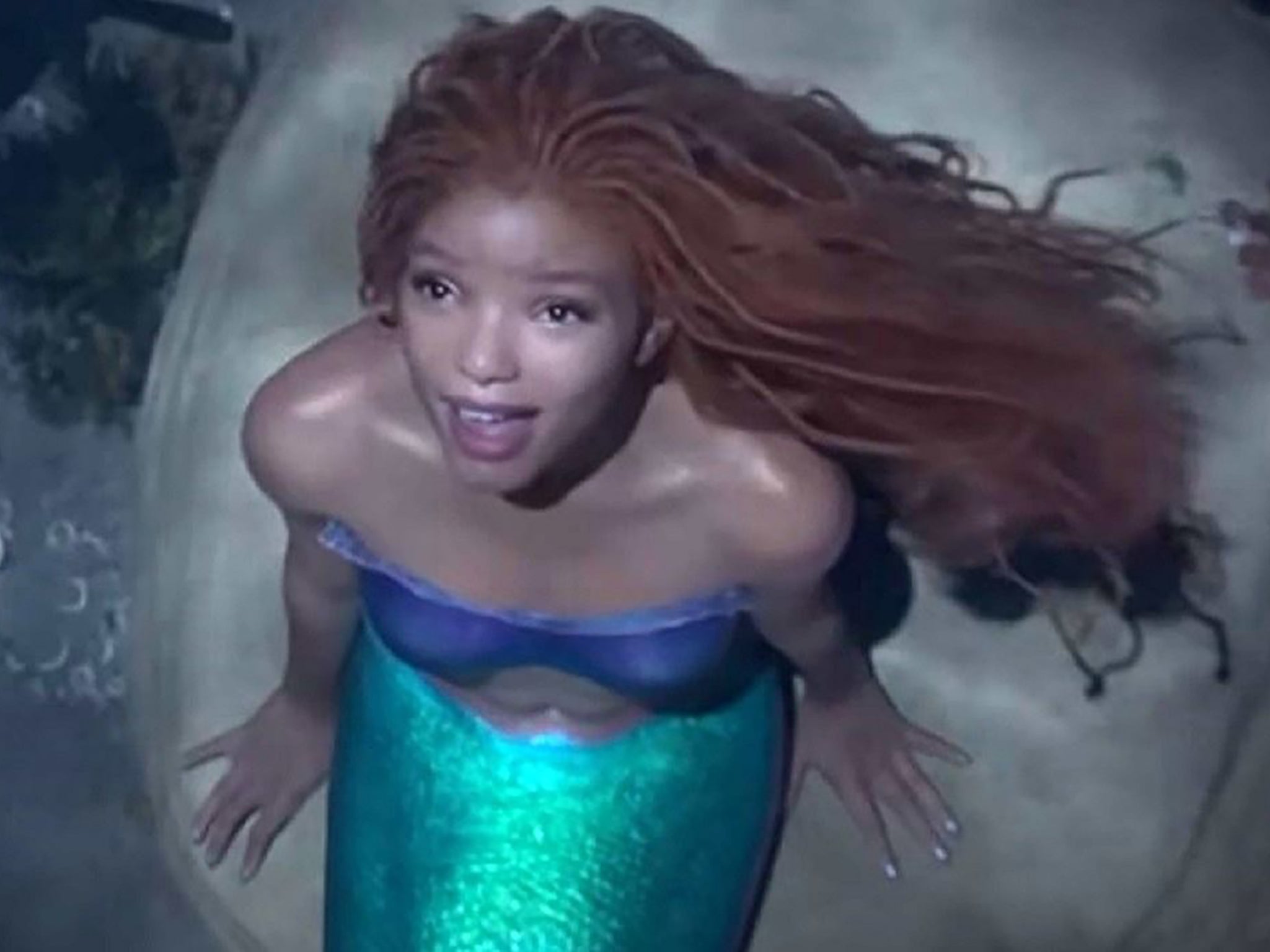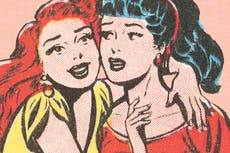The backlash against Halle Bailey’s Little Mermaid is as silly as it is predictable
Little Black girls will see themselves in the live-action ‘Little Mermaid’ next year, but already the film is experiencing trolling and criticism from the usual suspects, writes Nicole Vassell


For generations, it has been Disney that has taught us about the world. For decades, though, Disney only considered white characters as worthy of inclusion in their stories. It wasn’t until the Nineties that the corporation began to introduce non-white princesses, including Pocahontas, Mulan, Aladdin’s Jasmine and The Hunchback of Notre Dame’s Esmeralda. And it wasn’t until 2009 that Disney introduced a Black princess to the canon, in the form of Tiana in The Princess and the Frog.
After a childhood spent awkwardly squeezing into Belle – from Beauty and the Beast – and Snow White costumes at princess parties, I was thrilled to finally see a character specifically representing girls like me – never mind the fact that, by then, I was well into my teens, with my hardcore Disney-loving days behind me. Soon, countless Black girls will have someone else to point to as their hero: Halle Bailey’s Ariel in next year’s live-action remake of The Little Mermaid.
Over the weekend, fans got their first taste of Bailey’s Ariel – mermaid’s tail, purple bikini top and ginger dreadlocks to boot. As well as this, we also heard her sing some of the character’s signature song, “Part of Your World” and got a glimpse of the underwater kingdom that Ariel so longs to escape. For most, it was a joy. Bailey – one half of the singing sister duo Chloe x Halle – looked radiant as the wistful mermaid, while her sweet vocals introduced a fresh take on the much-loved character. But unfortunately, the trailer also resulted in a revival of the racist remarks that cropped up when Bailey was first cast in the part. Tied to the idea that the live-action version of Ariel should reflect her appearance in the original film – pale white skin, straight red hair – trolls declared that Bailey was #NotMyAriel. Many claimed that her casting was an example – surprise, surprise – of “woke” culture gone mad.
Immediately, many others rubbished the claims. After all, they’re arguing about who can and can’t play a human-fish hybrid creature. In a film that includes a singing crab with a Jamaican accent. And a purple octopus woman who steals voices. So to debate whether it matters that the lead character is now played by someone Black is, in many ways, very silly. This is all meant to be fictional fun, isn’t it? But in the effort to wave away the ridiculousness of the reactions, it’s easy to discount just how meaningful it is for Black girls to see versions of themselves on screen.
A viral thread of videos filmed in the wake of The Little Mermaid’s trailer release has shown dozens of children – and mostly Black girls – reacting with glee upon seeing Bailey. “I think she’s brown,” one girl says in a clip. It’s hard not to feel touched by the happiness it brings her.
Any child psychologist will tell you that the messages a young person receives is formative to their self-esteem. For many Black children, years of watching Black people being sidelined in pop culture reinforces ideas that they’re not “part of the world”. It’s a wrong-headed lesson that can take years to unlearn.

It has long been proven that children perceive of race and attach different meanings to different skin colours. In the Forties, Kenneth and Mamie Clark used dolls to conduct studies on children’s awareness of race. For instance, two different dolls were placed in front of Black children, and the Clarks found that the children were more likely to attach positive attributes to the white doll. More negative attributes were attached to the Black doll. Though it was initially intended to show the harm in segregated schooling, the experiment has been recreated several times in the 75 years since. It’s a prime example of how early children are affected by their surroundings.
Frankly, it’s heartbreaking to see how early and how deep this sense of negative bias exists in Black children. There is subsequently no telling just how extensively this feeling of inferiority can run – into adolescence and adulthood – and how much of it is related to what they’re taught about people who look like them. Having a media that actively shows that whiteness doesn’t have to be the default for our imaginations is a step towards making Black children feel just as important in their favourite stories as their white peers.
When it hits cinemas next year, The Little Mermaid will surely have families of all backgrounds in the seats, ready to enjoy. One film is not going to change a system that has long considered whiteness as the standard to uphold. For Black children, though, it’s an opportunity to feel included in part of the fantasy and the magic of Disney. Halle Bailey’s Ariel doesn’t take away from Jodi Benson’s voiceover in the animated version, and it’s not just a positive for Black children, either. Shouldn’t every child be able to conceive of heroes of all colours?
It’s been many years since my last princess party, and I don’t expect to attend one any time soon. But for the Black girls who will, I’m glad that Ariel doesn’t feel as far out of reach as it once did.




